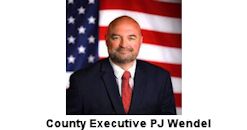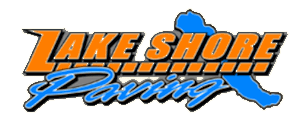The Post-Journal
by Jim Riggs
February 13, 1999
Recruiting was Different in Johnston Era
This year the talented Red Raider is Maceo Wofford, Jamestown's all-time career scoring leader who has already committed to Iona University for a full scholarship. For the 1968-69, the new career scoring leader at JHS was Donn Johnston, who led the Red Raiders to a 17-4 record (three of the losses were by one point and the other was by two points) and a Section 6 Class AAA title, which was as far as a high school team could go back then. But there was plenty ahead for Johnston, who accepted a scholarship to the University of North Carolina. However, Johnston's recruitment by the Tar Heels was not like today's sweepstakes for blue-chip high school players.
"It's a whole lot different now," said Johnston earlier this week from his Ambler, Pa., home. "There were (college) coaches around all the time because they could do that back then. A lot of people sent me airplane tickets just to go to their school for a weekend to visit. At one point I had five airplane tickets in my possession."
Now NCAA coaches aren't even allowed to speak to a recruit, who is limited to five official campus visits. Johnston, who will be inducted into the Chautauqua Sports Hall of Fame Tuesday night, can recall talking with other top high school recruits who were going for a college visit every weekend.
"I had pretty much narrowed it down to who I was going to visit, so I wasn't in to going every place we could," Johnston recalled. His visits were to North Carolina, Florida, Virginia and a close one to Canisius. Ironically, the latter was the only area college that recruited Johnston.
"Back then St. Bonaventure and Niagara were pretty strong and there wasn't really a whole lot of attention that they made with me," Johnston said. "I don't know if they thought I was going somewhere else or whatever."
It was a visit to Chapel Hill, N.C., that sealed the deal.
"Initially I was flattered," he said about the interest from North Carolina.
"At the time they were in the top four always and when I went down I just fell in love with the place and the players and the coaching staff, so that sort of did it right there and then. It was a pretty easy decision after that."
It was also flattering to be recruited by Tar Heels coach Dean Smith, who had just finished a run with his team in the Final Four for three years in a row. Smith visited for one Jamestown regular season game and then spoke at the team's banquet after Johnston had committed to the Tar Heels.
Not only was the recruiting different then, but the way you were "discovered." Now it is almost mandatory for a blue-chip high school player to be seen at a high-profile summer basketball camp.
"I never went to a basketball school, clinic or camp or anything like that," Johnston said. "I just wasn't aware they were out there. Now they go to camps in the summer and invitation-only type camps and that kind of thing."
At North Carolina, Johnston got a taste of the big time with two NIT appearances, including winning the championship in 1970, and one appearance in the NCAA Final Four in 1972, where North Carolina finished third.
When asked if playing the Final Four was a dream come true, Johnston said, "I would say it was a dream that developed, but it certainly wasn't something in high school that I dreamed of. I think now if you're in high school you're dreaming of the Final Four."
But in the early 1970s, when the NCAA Tournament had only a 16-team field, the Final Four along with college basketball in general was not a major television event, mainly because cable hadn't taken off yet.
"Back then you didn't really see a game on TV unless it was the Final Four," Johnston pointed out. " I played in the NIT two times and that was a big deal; I mean it was a real big deal." The NIT had some great teams because only conference champions went to NCAA Tournament. That left a lot of good teams available for the NIT.
Johnston's lone Final Four appearance was the year UCLA, with Bill Walton as a sophomore, won it by defeating Florida State, which had upset North Carolina in the semifinals. That Tar Heels team included future NBA players Bob McAdoo, Bobby Jones and George Karl.
"We were favored and we played well, it wasn't like we had a horrible game," Johnston said about the Florida State game. "It was just that they had a very, very good game."
Then the Tar Heels went on to defeat Louisville in the consolation game, another thing high school players today haven't heard of because the third-place game was dropped years ago.
Johnston graduated with a degree in political science, but was drafted by the NBA's Buffalo Braves in the low rounds. Johnston, a center at JHS, was able to play small forward in college, but he wasn't so sure about it in the NBA despite his 6-foot-8 height. "That was a big advantage in college," he said. "With my height I could make it so a lot of guys never caught the ball. I could play a 6-4, 6-5 guy and that was sort of my forte, making sure they never got it."
But in the NBA the players would have been guarding would have not only been the same height, but also heavier.
"I was very quick, which is why I was able to do that," Johnston said, "but not a beefy-type so I didn't even go to the (Braves) tryout or anything."
However, he did end up playing pro basketball in Belgium, after a coach from that league suggested it while working at a Tar Heels basketball camp with Johnston. Each team in Belgium was allowed two Americans and the other one on Johnston's team was also a former North Carolina player.
Johnston was successful as a top scorer in the league which helped his helped his team win a division title, but he only played the one season.
"It was a good experieince and I enjoyed it, but it was time to do something else," Johnston said. "I always knew there was something else I had to be preparing for."
So he attended law school at Wake Forest and practiced law in North Carolina until 1983. Then Johnston move to the Philadelphia area, where his wife, Kathy (a Duke graduate), is from and he operates a financial consulting business out of his home.
However, Johnston still has contact with basketball because his 12-year-old daughter, Kate, and 10-year-old son, D.J., play and he helps out coaching their teams. And before that, while practicing law in North Carolina, Johnston had a stint as the coach of a high school junior varsity team that included Hayward Jeffries, who went on to be a wide receiver for the Houston Oilers.
Johnston really enjoyed it and doesn't shy away from questions about coaching at the high school level again.
"Around here there are a lot of high schools and a lot of the coaches are not teachers," Johnston said. "Since I have my own business I have that luxury a little bit that I could do that."
But he takes a "Call me, I won't call you" attitude.
"I'm probably not going to go after it, but if something ever came up I would probably look at it," he said.
And the players would look up to their coach, who played in the Final Four under coaching legend Dean Smith.
The additional financial assistance of the community is critical to the success of the Chautauqua Sports Hall of Fame.
We gratefully acknowledge these individuals and organizations for their generous support.












